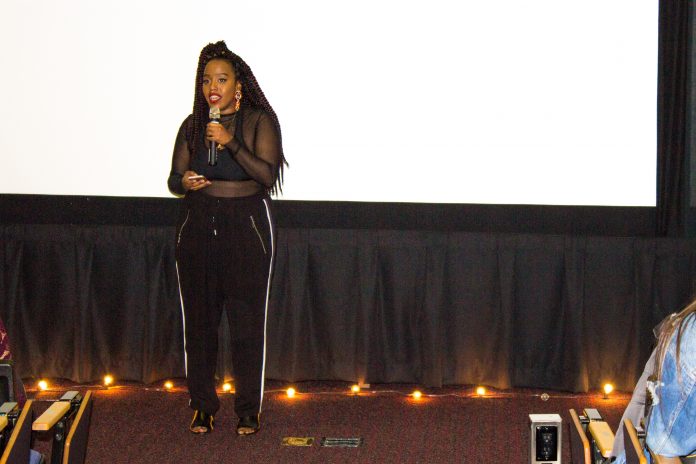
SFU Surrey became a platform dedicated to the stories of women of colour with a recent student-run event. The second annual Celebration of Women’s Voices brought students and locals from the community to the campus’ Westminster Savings Theatre on November 25.
The event was organized by fourth-year student and Instagram poet Harman Kaur, the SFU club Students for Humanity, along with local social worker Sandeep Gill. This November was the second time the event had been held at SFU Surrey. Kaur and Gill had also brought this event to the University of Calgary earlier this year in April.
“It is so important for women to control their own narratives, and be able to tell our own stories,” said Kaur in her opening remarks as she summarized the purpose of the event.
All proceeds from the ticket sales were donated to Students for Humanity, a SFU club dedicated to tackling social and health issues in the community, and additional monetary and food donations were also accepted.
Gill noted the sensitivity of the topics that would be covered in the event, which ranged from domestic violence, beauty standards, experiences of women of colour, and sexual abuse. She issued a trigger warning and informed the audience that a registered therapeutic counsellor was also available for anyone that may need support.
The audience was empowered to show solidarity with the speakers by snapping their fingers if the performance resonated with them.
The evening consisted of nine women speakers, each addressing her experiences through mediums that included stories, poetry, singing, and monologues. A large majority of the speakers had a significant Instagram presence — as each woman took the stage, the backdrop behind her featured her name as well as her Instagram handle.
“It is so important for women to control their own narratives, and be able to tell our own stories.” – Harman Kaur, Instagram poet
The list of speakers included Kamal Dhillon, a domestic violence survivor and author of Black and Blue Sari, a memoir accounting the abuse she suffered at the hands of her husband. After recounting her story and her healing process, Dhillon reaffirmed the need for the evening in her parting words to the audience.
“Let’s be the voice of those who couldn’t be a voice,” she said.
Jasmin Kaur, an Instagram poet under the account @jusmun, recited poetry about her experiences as a visibly religious Sikh women in the face of women’s beauty standards in contemporary society.
“All of the performances had something really special to offer,” commented audience member Karen Brar. “The most impactful for me was Nasra Amed because she wore so many of the stigmas of society — being a woman, being black, being queer, and unfortunately sometimes even being Muslim — and she turned them into something beautiful.”
Amed had taken the stage earlier that evening to share two poems — one of them about “when [she] came out to [her] mother a second time” — as well as a song about her experiences living at the intersection of so many controversial identities.
Gill commented on the lineup that had been put together for event, admitting that “it can be triggering, and we do have some intense pieces.”
“But we need it.”



